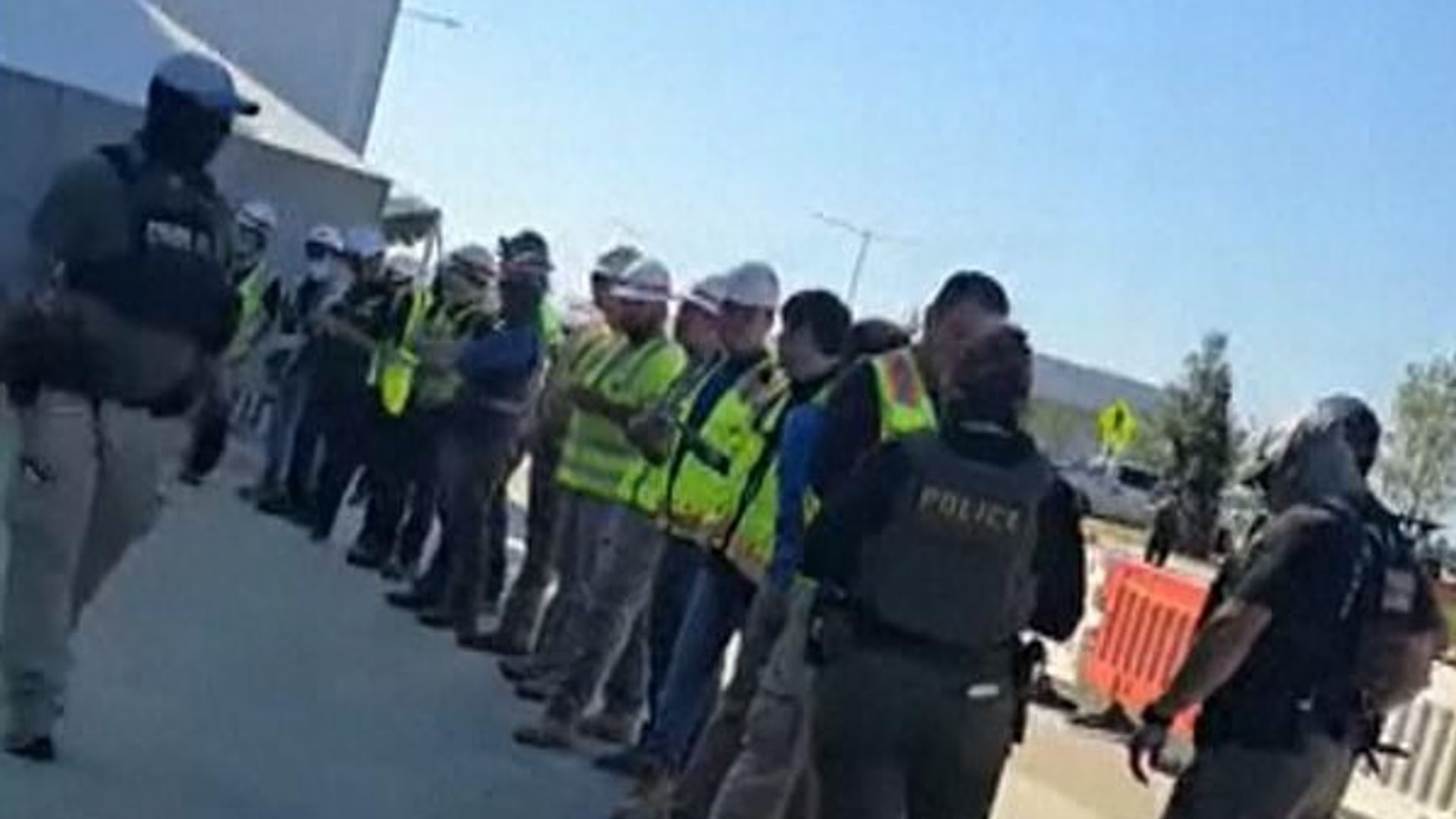
An appeals court has briefly extended temporary protected status (TPS) for nearly 12,000 Afghans in the United States, hours before it was to expire.
Monday’s order came 60 days after the US Department of Homeland Security (DHS) under President Donald Trump announced that it was ending the legal protections for thousands of Afghans legally living in the United States.
list 1 of 4
Iran tells millions of Afghans to leave or face arrest on day of deadline
list 2 of 4
Photos: Nearly half a million Afghans return from Iran amid crackdown
list 3 of 4
The Take: Why are Afghan refugees being sent back to Taliban rule?
list 4 of 4
Why are Afghan refugees being sent back to Taliban rule?
end of list
The order by the US Court of Appeals for the Fourth Circuit in Richmond, Virginia, granted an administrative stay on the termination until Monday after a request from the immigration advocacy organisation CASA.
The appeals court gave no reason for its decision but indicated it would be deciding what to do swiftly.
CASA had sought an emergency stay on Monday when the protection of Afghans was due to be terminated, court documents showed.
Its case also includes Cameroonians whose TPS is to end on August 4.
The immigrant advocacy group said the step to remove the status was arbitrary and discriminatory and would cause “irreparable harm” to those affected.
The court has asked both sides to submit briefs this week.
The Trump administration has until 11:59pm US Eastern time on Wednesday (03:59 GMT on Thursday) to respond.
A federal judge on Friday allowed the lawsuit to go forward but didn’t grant CASA’s request to keep the protections in place while the lawsuit plays out.
The stay is not a final decision but gives time for the legal challenge, said Shawn VanDiver, founder of AfghanEvac, the main coalition of US military veterans and advocacy groups that coordinates resettlements of Afghan refugees with the government.
Advertisement
“AfghanEvac stands firmly behind the legal challenge and calls on DHS and the Trump administration to immediately reverse course and extend TPS protections,” VanDiver said in an email to the Reuters news agency.
That status had allowed Afghans to live and work in the US and meant the government could not deport them.
Millions of Afghans who fled their country over previous decades are now being forced back to Taliban-ruled Afghanistan from countries including Iran, Pakistan and the US.
Deportations of Afghans are also anticipated in Germany as its government seeks talks with the Taliban.
About 180,000 Afghans have come to the US since the Taliban retook control of the country in 2021. About 11,700 of them are currently covered by TPS.
When Homeland Security Secretary Kristi Noem ended temporary protected status for Afghans, the department wrote in the decision that the situation in their home country was getting better.
“The Secretary determined that, overall, there are notable improvements in the security and economic situation such that requiring the return of Afghan nationals to Afghanistan does not pose a threat to their personal safety due to armed conflict or extraordinary and temporary conditions,” according to the May announcement.
But rights advocates said many Afghans who helped the US during its war in Afghanistan would be targets of the Taliban if they return home.
Particularly at risk would be women, whose rights the Taliban have rolled back since its return to power after the US withdrawal, rights groups said.
The International Criminal Court last week issued arrest warrants for two top Taliban leaders in Afghanistan on charges related to abuses against women and girls.
“While the Taliban have imposed certain rules and prohibitions on the population as a whole, they have specifically targeted girls and women by reason of their gender, depriving them of fundamental rights and freedoms,” the court said in a statement.
The US homeland security secretary may grant TPS to people from specific countries.
Countries that are currently designated for TPS include Afghanistan, Myanmar, Cameroon, El Salvador, Ethiopia, Haiti, Honduras, Lebanon, Nepal, Nicaragua, Somalia, South Sudan, Sudan, Syria, Ukraine, Venezuela and Yemen.
In addition to Afghanistan and Cameroon, the Trump administration has moved to end the designation for an estimated 260,000 Haitians and 350,000 Venezuelans.
The Trump administration has also announced it will revoke the two-year “humanitarian parole” of about 530,000 people in the US, including Cubans, Haitians, Nicaraguans and Venezuelans.
Advertisement
British Caribbean News


